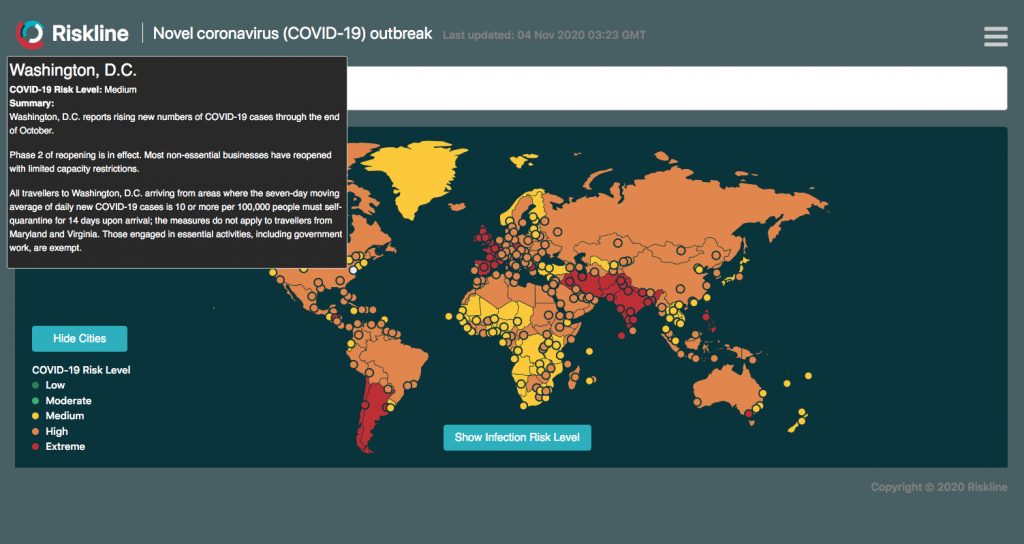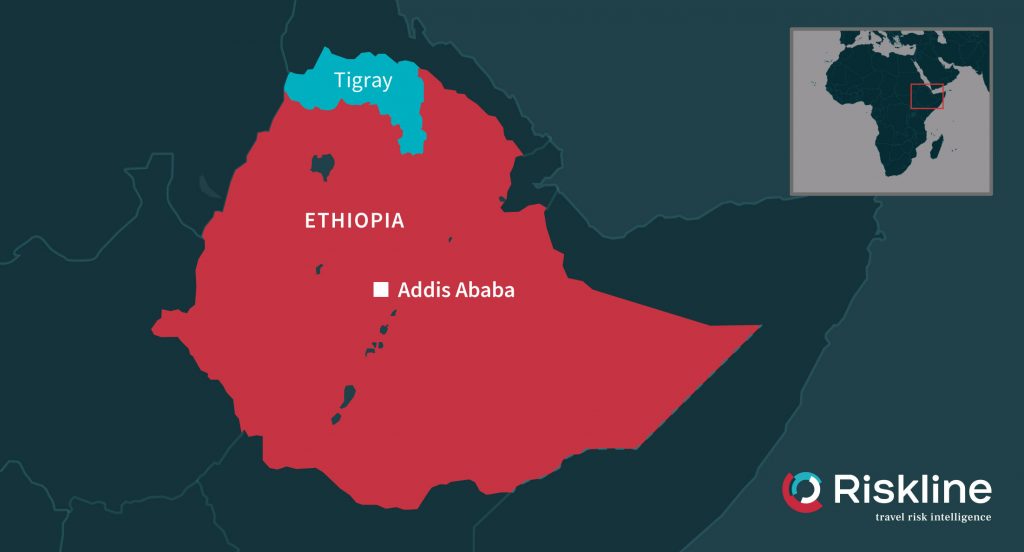The global death toll from COVID-19 is now closing on two million and the efforts to curtail the pandemic's potency continues to see strong actions from governments and public health officials that will continue to impact travel long beyond the current calendar year.
Looking ahead to the trends set to shape 2021, particularly the international travel sector, Riskline's director of operations Adam Schrader acknowledges that while there is hope that some parts of the world will see the end of the pandemic this year, its effects will continue to be felt in 2021 and beyond. "It's not yet clear the extent of the damage to healthcare systems or how long it will take them - and critically their workforce - to recover," he says.
What's likely to be with us well into the future "is the accompanying 'infodemic' - that virus of misinformation that often overwhelms sound public health messaging," he warns. The continued impact of COVID-19 on global travel is one of eight travel risks identified by Riskline's team of analysts, albeit the pandemic's impact spreads across many of these additional concerns.
The global team, in more than 15 countries across 11 different time zones, monitors the world's political crises, security developments, and travel news every hour of every day - all aimed at helping to keep travellers safe and managers informed.
Even as the global travel industry gradually recovers from the absolute standstill that it experienced through most of 2020, Riskline warns that the pandemic's "disruptive and ever-changing effect on the travel ecosystem will certainly continue this year" as the desire for countries to limit exposure to COVID-19 "will put pressure" and "cost burdens "on travellers. Similarly, entry and exit restrictions imposed by governments could change at short notice, further complicating global travel.
"Travellers in most countries should continue to expect measures such as health screening, quarantine and testing, socially distanced seating arrangements and contactless check-ins or transactions at airports, major public transport hubs, hotels and other facilities. Expect renewed lockdowns in high-risk areas and a reduction in capacity for transportation services of all kinds to be the new norm in 2021," warns Riskline.

Alongside the pandemic, climate change, the effects of natural disasters, such as tropical and winter storms, wildfires and monsoon rainfall in 2021 will "continue to be more severe" with emergency responses impacted by COVID restrictions. The increased severity of natural disasters will be complemented by overburdened health systems, claims Riskline, as COVID continues to test the ability of health systems to withstand shocks, or even delivering routine functions and mitigating downstream health effects into 2021 and beyond
Riskline cites a World Health Organisation (WHO) study from 105 countries that indicates that some 90% of countries have experienced disruptions to essential healthcare services, with low- and middle-income countries reporting the greatest difficulties during the COVID-19 pandemic. It includes Somalia, Central African Republic, South Sudan, Afghanistan, Yemen, Syria, Chad, Niger, the Democratic Republic of Congo, Mozambique, Sudan, Cameroon, Libya, Iraq, Nigeria, Uganda as well as Ethiopia, Eritrea, Haiti and Papua New Guinea among the countries with "the weakest capacity to cope with the added burden of the pandemic".
Another COVID impacted risk is of social unrest caused by anti-austerity measures, COVID-19 restrictions and vaccine deployment. The global economy was expected to shrink by approximately 4.4% in 2020, due to the COVID-19 pandemic, according to International Monetary Fund (IMF) estimates and the effects of this recession will certainly continue to be felt this year.
Riskline warns that "lower tax receipts and ballooning public deficits" are likely to force governments across the world to "implement painful austerity measures, including cuts to social programmes and unemployment benefits". These actions certainly carry with them the potential to trigger popular unrest led by activist organisations, as we have seen more frequently over recent years.
Regional concerns with wider global impact include Iran and wider tensions in the Middle East, identifies Riskline. Meanwhile, the Horn of Africa region is seen to be at "an increased risk of destabilisation" as conflict in Ethiopia could further spill over into neighbouring states, including Eritrea, Sudan and Somalia, and worsen existing humanitarian, security and political challenges in these countries.

Similarly, there is also concern of an increase in crimes, such as carjacking and burglary, in developing and semi-developed countries, "whose governments are unable to provide adequate financial aid and other forms of relief amid the economic downturn triggered by the COVID-19 pandemic," warns Riskline.
Away from COVID there is also the question of global political uncertainty amid a post-Brexit United Kingdom and post-Trump United States, warns Riskline. The UK's exit from the European Union (EU) and its effects and President Biden's challenge for economic recovery are clear uncertainties, but there are others.
Elsewhere, France has a presidential election approaching in 2022, NATO "will have to address the Turkish elephant in the room," and Asia-Pacific nations such as Taiwan, Japan, South Korea and Australia, "will demand greater attention to deal with an emboldened People's Republic of China," it warns.
It is clear there are a number of travel risks for the 12 months ahead, and that is just the ones that we can predict. As 2020 proved, it is the unexpected risks that have the biggest impact.